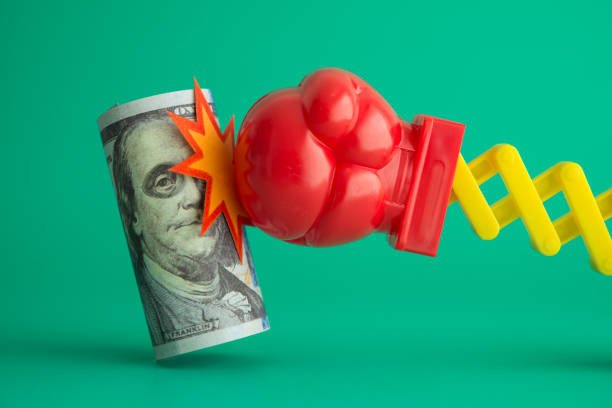Why an Emergency Fund is Non-Negotiable
In today’s unpredictable economy, where high inflation erodes savings and unexpected expenses lurk around every corner, a robust emergency fund isn’t a luxury—it’s a necessity. Aiming for a $5,000 safety net in just six months might seem daunting, especially when every dollar feels stretched. However, with a focused strategy combining aggressive savings, smart budgeting, and tactical income generation, this goal is completely achievable. This guide provides the most actionable steps to help you secure your financial future, fast.
1. Optimize Your Budget: The 50/30/20 Rule Refined
Traditional budgeting needs an upgrade when facing high inflation. We’ll refine the classic 50/30/20 rule to prioritize your savings goal.
- 50% Needs: Essential expenses like housing, groceries, minimum debt payments, and utilities. Action: Aggressively cut non-essential ‘needs’ (e.g., downgrade phone plan, lower grocery bill with meal planning).
- 30% Wants: Non-essential expenses like dining out, entertainment, and subscriptions. Action: Temporarily slash this to 10-15% for the next six months. Every dollar saved here goes straight to the fund.
- 20% Debt/Savings: Your traditional savings and debt payments. Action: Boost this to 35-40% to meet the $5,000 goal.
| Month | Target Savings | Total Goal (6 months) |
| 1-6 | $833.33/month | $5,000 |
2. Conquer High-Interest Debt First (But Don’t Stop Savings)
High-interest debt (like credit cards) works against your emergency fund goal by increasing your monthly outlay.
- Tackle the Highest APR: Use the Avalanche Method (paying off the highest interest rate first) to free up the most cash flow.
- Temporary Pause on Low-Interest Debt: For 6 months, only pay the minimum on low-interest loans (e.g., mortgages, student loans) and redirect the extra money toward your emergency fund. This is a short-term tactical move.
- Product Suggestion: To better track and pay off debt, a personal finance organizer can be invaluable.
- Recommended Tool: A Budget Planner and Financial Organizer.

3. Tactical Income Generation: Boosting Your Cash Flow
To hit $833 per month, you likely need more than just expense cuts. Focus on fast cash generation.
- The “3-Source” Strategy:
- Sell Clutter: List unused items on platforms like eBay, Facebook Marketplace, or local apps. Target high-value, low-effort items first.
- Side Hustle: Commit to a focused, high-return side hustle:
- Gig Economy: Delivery services (Uber Eats, DoorDash) or ride-sharing (if you have a reliable vehicle).
- Freelancing: Offer skills like writing, graphic design, or virtual assistance (VA) on sites like Upwork or Fiverr.
- Negotiate: Ask for a raise at your current job, or negotiate lower rates on bills (insurance, internet, cable).
4. Smart Savings Placement: Fighting Inflation’s Bite
Once you save the money, don’t let it sit in a zero-interest checking account, where inflation will secretly devalue it.
- High-Yield Savings Accounts (HYSA): This is the ideal home for your emergency fund. HYSAs offer significantly higher interest rates than traditional banks, often 10-20 times more, helping to offset some of the inflation.
- Accessibility is Key: Your fund must remain easily accessible. Do not invest your emergency fund in the stock market, as its volatility defeats the purpose of an accessible safety net.
- Product Suggestion: Need a simple, secure place to stash your cash?
- Recommended Tool: A Small Digital Safe Box (For securing important documents and any cash overflow before depositing).

5. Automation and Accountability: Making it Stick
Consistency is the secret weapon to reaching $5,000 in 6 months.
- Automate Transfers: On your payday, immediately transfer the target $833.33 (or a proportional amount) from your checking account to your HYSA. If you don’t see the money, you can’t spend it.
- Track Progress: Use a dedicated app or spreadsheet to visually track your fund’s growth. Seeing the numbers increase provides powerful motivation.
- Set Rewards (Non-Monetary): Promise yourself a small, free reward (like a dedicated movie night or a hike) when you hit the halfway point ($2,500).
Summary: Your 6-Month Action Plan
- Month 1: Drastically cut Wants (30% to 15%) and find the first source of side income (e.g., selling unused items).
- Months 2-5: Maintain aggressive savings transfers ($833.33/month) and consistently pursue your dedicated side hustle.
- Month 6: Hit the $5,000 goal and use the momentum to start saving for a long-term goal.
Ready to take control of your money and achieve real financial freedom? For more expert-level budgeting strategies and advanced income hacks, visit eliteonbudget.com today!
